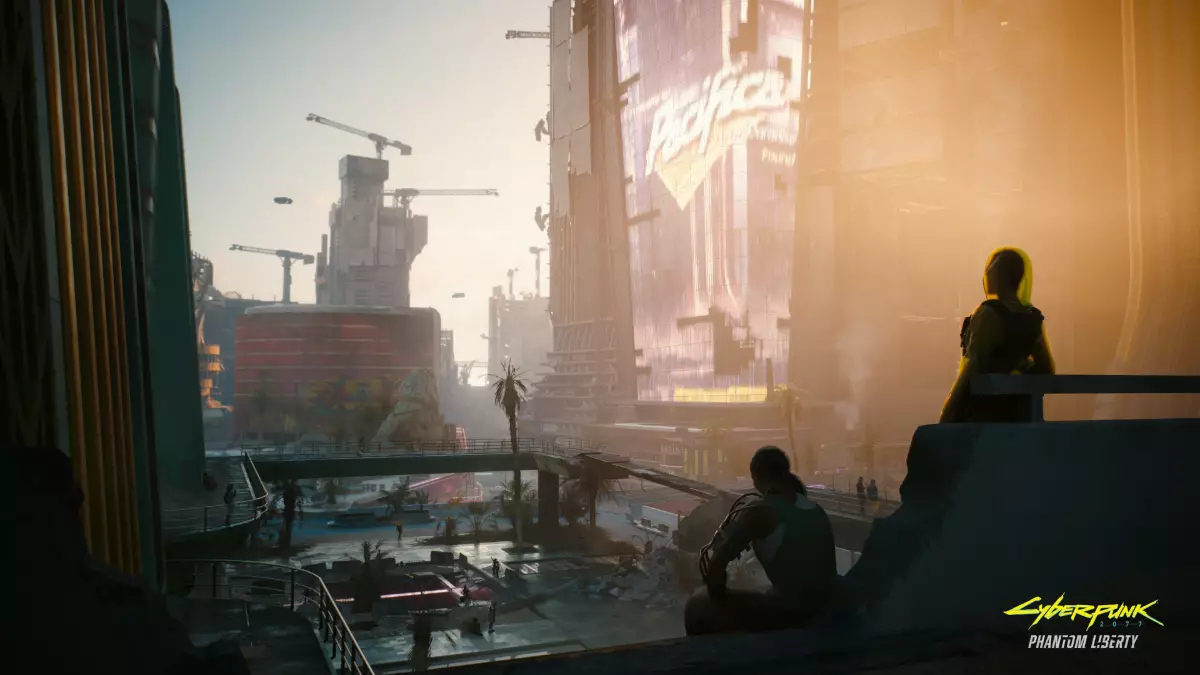The anticipation surrounding CD Projekt Red’s upcoming sequel to the ambitious yet flawed Cyberpunk 2077, code-named Project Orion, ignites both hope and skepticism among gamers. The Polish studio, notorious for its mishaps with the original game, has maintained a shroud of secrecy since the project’s announcement in 2022. Recent remarks from Cyberpunk’s creator, Mike Pondsmith, add a layer of intrigue to the sequel but also fuel concern. Pondsmith’s vague revelations about a second location alongside Night City sound promising, yet they eerily echo past promises that ultimately fell flat when the original game launched.
With Pondsmith’s arrival atop the news cycle, many might assume that a successful sequel is assured; however, hindsight reminds us of the pitfalls of over-expectation. The first installment, though bursting with ambition and creativity, was marred by bugs and performance issues that overshadowed its narrative depth. The fallout from such a disappointing launch keeps the stakes incredibly high for Project Orion. As gamers, we are left wondering whether CD Projekt Red can master a child’s second attempt at a new masterpiece or whether we are merely setting ourselves up for another catastrophic disappointment.
A Broader Horizon: The Promise of Dual Cities
Expanding the Cyberpunk universe by adding an entirely new city offers a tantalizing glimpse into what Project Orion might become. Pondsmith described the new location as “Chicago gone wrong,” a description that tantalizes yet brings caution. The idea of traversing multiple metropolitan landscapes certainly adds depth to the gameplay, but one can’t help but wonder if the studio has learned from past failures. Can they truly populate this new city with life, character, and, above all, functionality?
It’s easy to envision a world teeming with neon lights, bustling crowds, and dangerous factions like those found in Night City, but what if the execution falters again? Adding complexity without adequately improving infrastructure and systems could lead to overcrowding, both in digital space and in terms of player frustration. Gamers have long memories, and fidelity to promises about dual cities brings with it an urgent need for improvement and innovation—a responsibility CD Projekt Red can’t afford to neglect.
Infrastructure: The Heart of the Experience
The mention of a ground-breaking crowd system, supposedly the most realistic in gaming history, could either bolster or shatter players’ immersive experiences. If executed well, this feature poses the potential for compelling, organic interactions that resound through both Night City and the new locale. However, this ambition also places immense pressure on a studio still recovering from the backlash of Cyberpunk 2077’s botched launch. Rumors abound regarding the game’s development within Epic Games’ Unreal Engine 5—a choice that, if navigated skillfully, could lend itself to awe-inspiring visuals. But it’s vital to recognize that cutting-edge technology does not always translate into an engaging experience.
If Project Orion’s technology fails to support a thriving environment, introducing two expansive cities may instead amplify the shortcomings of design that many have come to expect from this studio. Communities thrive on interaction, immersion, and responsiveness, and if Project Orion feels like two sprawling yet disconnected worlds, we will be reminded how a multitude of content does not always equate to quality.
The Shadow of The Witcher
The dichotomy of CD Projekt Red’s simultaneous commitments—that to the Cyberpunk universe and the ever-looming legacy of The Witcher—creates a complicated narrative for fans. With The Witcher 4 on the horizon, expectations for both franchises are soaring, and resource allocation becomes a delicate balancing act. Will Project Orion receive the attention it requires, or will it be merely a footnote in the greater narrative that’s dominated by Geralt and company?
The ambition to continue delivering on two beloved franchises inherently raises questions about management capabilities. Fans deserve a project that feels passionate and authentically engaging, void of the glaring mistakes of Cyberpunk’s release—hoping for a beautifully interconnected world instead of a tale fraught with missed opportunities. Ultimately, the creative journey of Project Orion could either revive the tarnished reputation of the studio or lead us deeper into a spiral of vague promises and unfulfilled desires—an echo of previous missteps that many are not inclined to forgive easily.
With all eyes on CD Projekt Red, the coming years promise to be a thrilling yet commendably anxious ride through a hyper-urbanized world that begs for transformation—one that may well define the studio’s legacy.


Leave a Reply